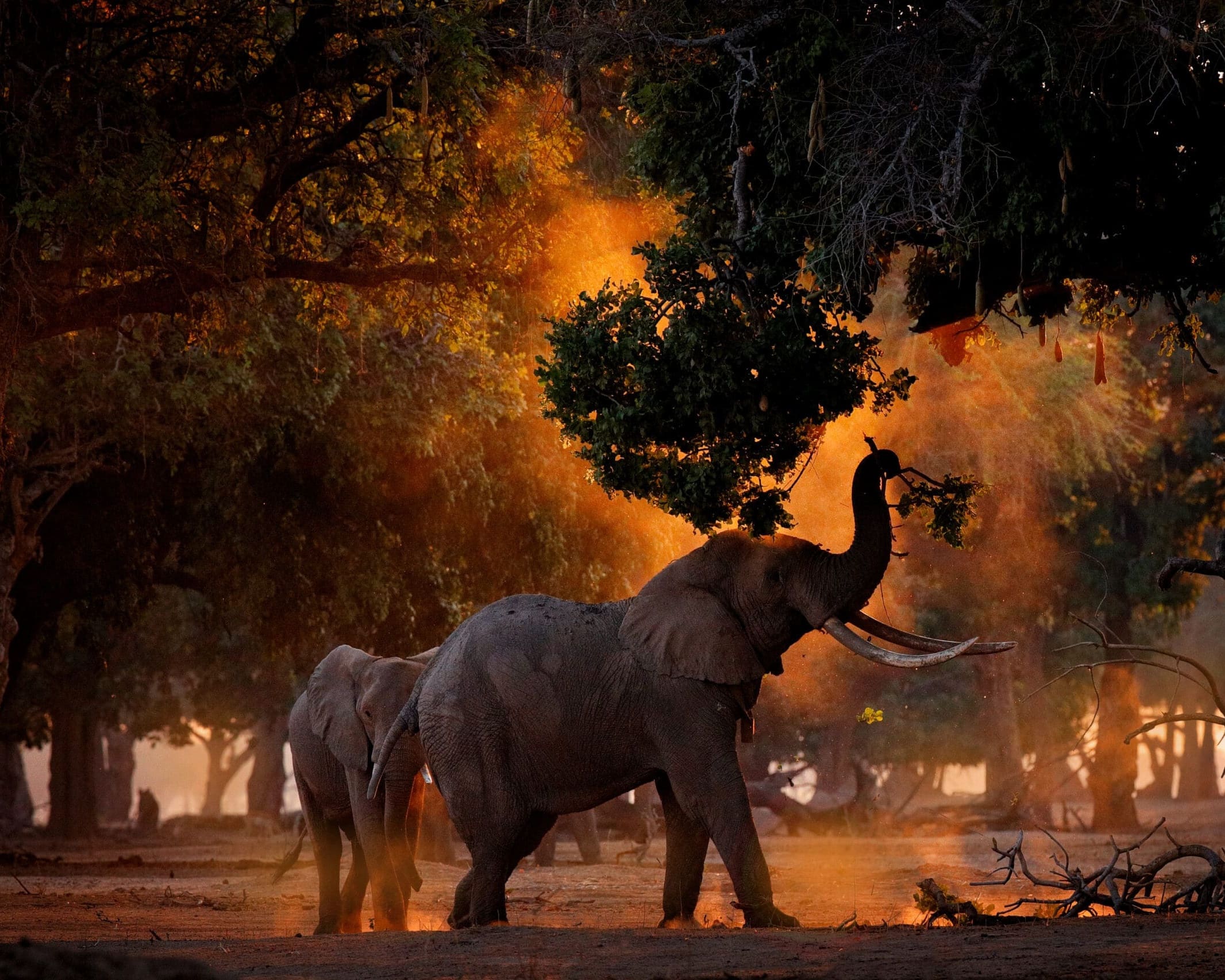Welcome to Zimbabwe, a land where nature’s majesty meets rich cultural tapestries. From the thundering grandeur of Victoria Falls, one of the Seven Natural Wonders of the World, to the vast landscapes of Hwange National Park, home to a wealth of African wildlife, Zimbabwe offers an adventure for every spirit.
Immerse yourself in the history of ancient civilizations at the Great Zimbabwe Ruins, and witness the serene beauty of Lake Kariba. Zimbabwe is not just a destination; it’s an invitation to experience the heart of Africa, where every moment is a story and every landscape a masterpiece.

The Best Time To Visit
The best time to visit Zimbabwe for wildlife viewing and comfortable weather is during the dry season, from May to October. During this time, temperatures are milder, and the lack of rain reduces the density of the bush, making animals easier to spot as they congregate around water sources. This period is ideal for visiting Zimbabwe’s national parks.
The dry season also coincides with lower malaria risk, although precautions should still be taken. Nights can be cool, especially from June to August, so packing warm clothing for early morning and evening safaris is advisable.
What To Know
In Zimbabwe, English is the official language.
Besides English, there are 16 official languages recognized in Zimbabwe, reflecting its cultural diversity. The most commonly spoken indigenous languages are Shona, spoken by the majority of the population, and Ndebele, predominantly spoken in the Matabeleland region in the south of the country.
For travelers, English is generally sufficient for communication, especially in urban areas and tourist destinations, but learning a few basic phrases in Shona or Ndebele can be appreciated by locals.
The most commonly used currency is the United States Dollar (USD), alongside the Zimbabwean dollar (ZWL), which was reintroduced in 2019. The use of the USD became widespread following periods of hyperinflation that led to the suspension of the original Zimbabwean dollar in 2009.
In addition to the USD and the new Zimbabwean dollar, other foreign currencies such as the South African Rand, Botswana Pula, and British Pound may also be accepted in some transactions, especially in border areas and for some types of businesses. However, the USD is preferred and widely accepted across the country for most transactions, from everyday purchases to paying for accommodations and services.
Travelers are advised to carry USD in various denominations for convenience and to ensure that they have access to sufficient cash, as electronic transactions may not always be reliable and ATMs may not be readily available or stocked with cash outside of major urban areas.
Zimbabwe, known for its stunning landscapes and rich cultural heritage, is generally considered safe for travelers, especially those visiting major tourist destinations. Tourists are welcomed warmly by locals and can enjoy the country’s attractions with relatively low risk of serious crime.
However, like any travel destination, it’s important to exercise common sense and stay informed about the local situation.
Additionally, road travel can be hazardous due to poor road conditions and erratic driving standards in some areas. If driving, be cautious and preferably avoid night travel.
Health-wise, visitors should take precautions against malaria and ensure they have necessary vaccinations before traveling. Access to medical facilities may be limited outside major cities.
Public transport in Zimbabwe primarily consists of minibuses, known locally as “kombis,” which operate within and between cities and towns, offering an affordable way to travel. These minibuses are a staple of urban and rural transportation, connecting major urban centers with outlying areas, though they can be crowded and their operation standards may vary.
For longer distances between cities, coach services are available, providing more comfortable and reliable transport options. These buses are operated by various companies and serve major routes across the country, including cross-border journeys.
In urban areas, particularly in Harare and Bulawayo, there are also formal city bus services that operate on specific routes. However, the availability and reliability of these services can fluctuate.
Zimbabwe Travel Guides
April 24, 2022
